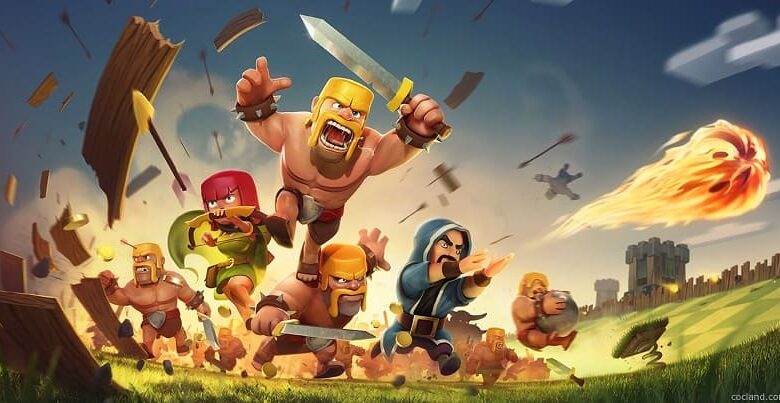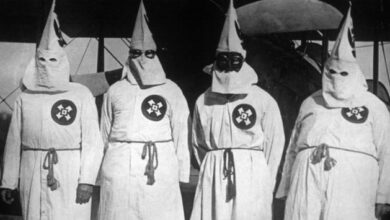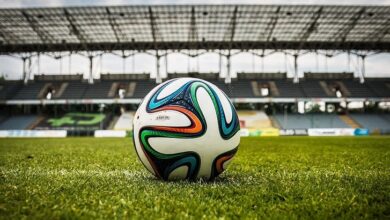
Corruption of champion’s games is a popular and addictive game where you play in an open world defending a village.
The Game comprises of both action and adventure where you travel around from one city to another fighting demons.
After playing this awesome game, you might have got yourself in a spot where you are looking for games like Corruption of Champions.
Our list of Games like Corruption of Champions
To keep you from continuously searching around, here is a list of top 25 games like Corruption of Champions:
Carnal souls
Carnal souls is an adult game that includes adventure that helps it rank among the top 25 games like Corruption of Champions.

The gameplay is free and does not require you to pay any dime before you can navigate through this awesome game.
While playing the game carnal souls, you can change yourself to your desired character.
Although some transformation outcome might be sexy while some are not.
However, you might get some benefits through a transformation like gaining of claws, big tits, and wings.
The transformation essence is not that hard to obtain because the more you play, the more you have a chance of getting the transformation essence.
It is the main reason why the Carnal Souls game is one of the best adventure game out there because nobody will ever want to miss the opportunity of playing a game where you can transform and upgrade your body.
Features
- The game contains awesome and well-animated characters like Marley.
- During the gameplay, you will get a player home with customized bedrooms.
- Lots of tasks to play through while travelling around the open world.
Kingdom of loathing
The Kingdom of Loathing is multiplayer, which comprises of 40 adventures.

You can even drink alcohol and consume food during the gameplay as well as crafting item that can be used to fight monsters.
The more you play, the more you earn rewards that can be used in upgrading your weapons, skills, and items.
Features
- It is a multiplayer game.
- The game has over 40 adventures that involve cooking, smiting items, and more.
- The game has thousands of weapons and armour to choose for your adventure.
Flexible survival
The flexible survival is an open-world game where you get to choose professionally animated animal characters throughout the gameplay.

It was first to introduce in 2008 as a single-player game where you get the opportunity of exploring the fantasy world.
There are different types of creatures and quests to play through.
You might experience a problem during the game quest of visiting some cities as you can be infected through sexual contact.
Features
- It is a single-player adventure game.
- There are lots of new monsters and creatures to fight.
- Item to upgrade your amour and weapon can be collected from killed monsters.
The poor whore
The name of the game explains all that you need to know about the gameplay.

The game story goes on as a poor whore who has to survive throughout her entire life.
The game is designed with light data that allows you to download it on pc easily.
The game is an Action-adventure game that will alter your sexual emotions as you play through the quest and story mode.
Features
- You act as a whole in the gameplay while collecting information.
- You do not only act like a whore as you can also fight combats.
- The graphics are fantastic with lots of characters to choose within the game.
Free cities
One of the similar game like Corruption of Champions is the free cities.

The game can be run directly from your browsers like Google Chrome and Firefox without the need of going through unnecessary installation.
Although, you need a stable internet connection when running the game in your browser.
The game is full of action and adventure that will keep you addicted for an extended period.
You can also train yourself and trade products to broaden your experience.
Features
- The game allows you to use cheats and mods in enhancing the gameplay.
- There are a lot of exciting modes to choose from the game.
- The game includes adult’s graphics contents.
Anchor head
Anchor head is a horror game created in 1998 that comprises of a story where you play as an unarmed woman who has lost her husband known as Michael.

The gameplay is designed to be played on a maximum of 4 days.
Features
- Horror video games support different devices like windows, mac, Linux, and browsers.
- The game graphics and theme is of high quality.
- The storyline is unique, unlike other horror video games.
Cypher cyberpunk adventures
The cyberpunk adventure game focuses on Action-Adventure as well as sex part with serious looks when playing with the characters.

The graphics of game scenes is something to talk about, as it will freshen the atmosphere of the gamers during gameplay.
The gameplay information is based on text and sound instead of voice like other games, but it is still one of the best.
Features
- The game works on only on Macintosh operating system.
- It is a single-player game.
- The game adventure text is default on English.
Fall of Eden
The fall of Eden comes with animated supernatural graphics that will set your mind ablaze.

The gameplay also resembles that of the Corruption of Champions because your adventure begins from your house and neighborhood.
Your task during the game place is to eliminate the monsters that are affecting the human race.
You can even investigate some murder cases to capture the villain monsters.
Features
- There are lots of mod to boost the gameplay.
- It is a text-based fantasy game.
- It is an adult game.
My very own lith
My very own lith game comprises of a cat boy or girl known as lith that is easily embarrassed.

However, as the game character, you can befriend, dominate, or seduce lith in the game.
As the gameplay goes on and you got closer with lith, you will learn his/her internal heart desires and conflicts helping him/her find a solution.
The ability to move around inside the game while interacting with people makes it worthy of being one among the top 25 games like Corruption of Champions.
Features
- You get to play as a shy cat through the game adventures.
- It is a text-based flash game.
- It is compatible with a series of devices device that supports flash through the browser.
Gift of phallus 2: The key to eternity
The Gift of phallus 2 is exactly like the Corruption of Champions because the gaming experience is the same.

The game gives you an everlasting Action-Adventure gaming experience that will bring you back to the medieval universe.
When playing the game, you are required to work through the quests as Princess Dalia.
The Game contains sexual scenes as you play as the god of sex phallus through a series of episodes.
As you play, you have the opportunity of having fun, playing with the nude girls.
Features
- The adventure walkthrough is unique and extraordinary.
- The game graphics are of high quality.
- It supports operating systems like Windows and Mac.
Fallen London
The game was developed in 2009, which is titled Echo Bazaar initially.
The fallen London game story is fantastic with unique ideas and sound that makes it worth including in the list of games like Corruption of Champions.
The gameplay consists of you living a city going through regular life activities.
The game gives you an option of tracking your stats based on the amount of quest you might have completed.
Features
- An adventure game supports both PC, IOS, and android.
- The gameplay is unique as you navigate through the city with no living expenses.
- You can also track your game stats and progress.
Alto’s adventure
The Alto’s Adventure is a 2015 game that is all about snowboarding.
The snowboarding player can be controlled by tapping on the screen, which can lead to awesome tricks like backflips and jumps.
The more you play, the more you will be able to improve your high score and earn rewards to upgrade your kits.
As the name sounds, the adventure is something that you cannot only imagine without playing it.
The tricks and combo to perform during the gameplay will keep you addicted to this game.
You even have the option of synchronizing your player stats and progress right on to your device, whether ios or Android from the cloud.
The game developed and produced by indie Development Company in Toronto.
However, the games were not available on mobile, until it was recently ported to Android and ios.
Features
- It works on all device, whether it is Windows, Android, IOS, and Mac.
- In the game, you can perform awesome tricks while snowboarding as well as upgrading of your tools.
- The game graphics are extraordinary as you navigate through the landscape view on your snowboard.
Lilith’s throne
The game comprises of a story concerning both human and demons, which is fun.
The gameplay started where you are transported to another dimension, and your twin cousin was the only one you know.
However, she still exists in the dimension world, but she is not your cousin anymore.
Features
- A text-based action-adventure game, which was developed by Innoxia.
- The game story is fantastic, starting from where you are transported into another dimension.
- The game is entertaining and addictive because of its excellent gameplay.
Lula 3d
In the Lula 3d game, you will have to play as Lula to release your kidnapped stars.
The gameplay is addictive as you have to go around the open-world gathering information that will help you accomplish your quest.
You aim to get your co-stars back so that you can shoot the next movie.
As you play the game further, you will have the option of solving different varieties of puzzles that will allow you to find the culprit.
Features
- The game works only on Windows operating system.
- The gameplay comprises of you playing as the protagonist Lula.
- It is an adult erotic video game.
Lust for Darkness
Lust for darkness is a new adventure game that has that fantastic horror seems.
You will have to play as Jonathan Moon who is looking for his missing wife.
Until he realises that the Yelverstones mansion contains secrets that are related to the occult group.
In the game of list of darkness, you will experience a lot of the actions adventure feeling while Jonathan is searching for his wife.
You do not have to keep fighting because the more you play, the more you have the opportunity of solving many mystery puzzles.
The game was introduced in 2018, and lots of updates are still coming forward for it as well as mods to broaden the gameplay.
Features
- It is an action-adventure video game.
- You are allowed to roam around in the world when searching for your wife as Jonathan.
- It works on all device.
- The games contain erotic painting and themes.
Leisure suit Larry: wet dreams do not cry
Get back that old feeling of the Corruption of Champions game when you play the leisure suit, Larry.
The set contains an adult theme, but that is not all as it is a comedy adventure game with classic episodes.
The company Sierra introduced it in 2018.
The gameplay is fantastic as you play as Larry who likes his dream girl.
As you play the story, more riddles are unlocked.
Features
- The games contain many exciting riddles.
- There are many adult erotic scenes in the game.
- The game is compatible for both Windows and Mac.
Omega labyrinth life
The omega labyrinth life is the story of a student that fights the monster in the school of Belles Fleur academy together with friends.
The primary purpose of fighting the monsters is to save their school maze.
The action-animated storyline is something to talk about because you get to experience advance gameplay.
Features
- The game contains different characters of the monster.
- It is a single-player game.
- The game graphics are of the highest quality.
Lust from beyond
Lust from beyond is a top-notch erotic adventure video game like the corruption of Champions.
It contains little horror scenes where you play as Victor Holloway, a member of Ecstasy cult.
Your task throughout the gameplay is to get to Lusst’ghaa known as the last of pain and pleasure.
The game is the same as the list for darkness as this is the continuation.
The game was first introduced in 2019.
Features
- The game contains the highest graphics.
- A unique storyline to play throughout the game task.
- The game contains horror scenes and works on all device.
Playboy: the mansion
The game was developed big the largest company of the Playboy enterprises acting as one the favorite magazine in 2005.
However, as a magazine company, they decide to enter the business of video games.
Features
- It is a popular video game in 2005 with lots of new story modes.
- The games work on all device.
- The developers regularly update the game.
Lula the sexy empire
The Lula “the sexy empire” might be an old video game developed in 1998, but it is still one of the best adult strategy game.
Your gameplay task is boosting and expanding the porn empire.
The game is well detailed and arranged into three parts to complete the job.
You will need to earn lots of money in the first part to purchase counterfeit documents that will help you escape from the town.
So that you can be able to develop and expand your porn business being the second part.
As you grow your business, you hire lots of actors and models; however, only Lula the protagonist will be your primary client.
The name of your porn business will be the sexy empire.
Features
- You play around the open world completing tasks.
- There are different varieties of characters to choose from the game.
- The game task is unique, being addictive and fun.
Erotica Island
The Erotica Island is an erotica adventure game that comprises of different varieties of adult themes.
The gameplay is all about you the playboy Rysiek being imprisoned on an Island.
Your task is to solve the prison puzzle and escape from the Island.
The game was introduced since 2001.
Features
- Game contains advance prison escape puzzles.
- The game contains erotic graphics
Airline 69: return to Casablanca
The airline 69 return to Casablanca is one of the best games like Corruption of Champions.
The game graphics erotic colour is something to talk about, as it is outstanding.
Features
- The game contains advance erotic colour.
- The gameplay is designed to run on hot African climate.
- The game works on both Windows, Linux, and Mac
Dragon knight
The dragon knight is a browser rampage game that was introduced in 2018.
A Turkish developer creating a fantasy world where you play and navigate around multiple locations developed the game.
Each place has its task and activity that will help you get familiar with the universe.
The game allows you to roam free in the open world and perform fantastic activities like getting married.
Features
- Roam free around the open world and perform tasks.
- Ability to explore different locations in the world
- The game can be accessed through a browser, and it is regularly updated.
Sex vixen from space
An old adventure game with the erotic theme but still worth adding on the list of games similar to the Corruption of champions.
Throughout the gameplay, you will have to play as a traveler Brad Stallion.
You will have to reach the women planet called Mondo and explore.
Features
- You have the opportunity of navigating around the new planet.
- Meet and flirt with new female characters.
- The game contains a robust erotic theme.
Schoolgirl/zombie hunter
The game is a third-person shooter game that still contains erotic themes and actions.
The game was developed from Tam soft studio in Japan.
The gameplay is based on the activity in university where zombie infiltrated the school killing Schoolgirls.
However, only five trapped Schoolgirls inside the university is willing to fight and challenge them.
You can compete with melee weapons and firearms, which can be upgraded as you, earn bonuses.
The game is designed with 3D graphics with anime characters.
Features
- The game comprises of 3D graphic characters.
- You get the opportunity of fighting with melee weapons and firearms.
- You can upgrade your weapons as you earn a bonus.
Conclusion
With all of the best 25 games like Corruption of Champions, you have the opportunity of experiencing different types of gameplay.
You can even bring out a new gaming adventure experience by using mods for all these games.
No matter what your preference is, once you are searching for similar games like Corruption of Champions you will surely love the above list 25 games.
Gamers have already finished playing the Corruption of Champions and are willing to try new games.
As we, all know, the Corruption of Champions has made a remarkable change that can affect the interest of users with its fantasy features.




